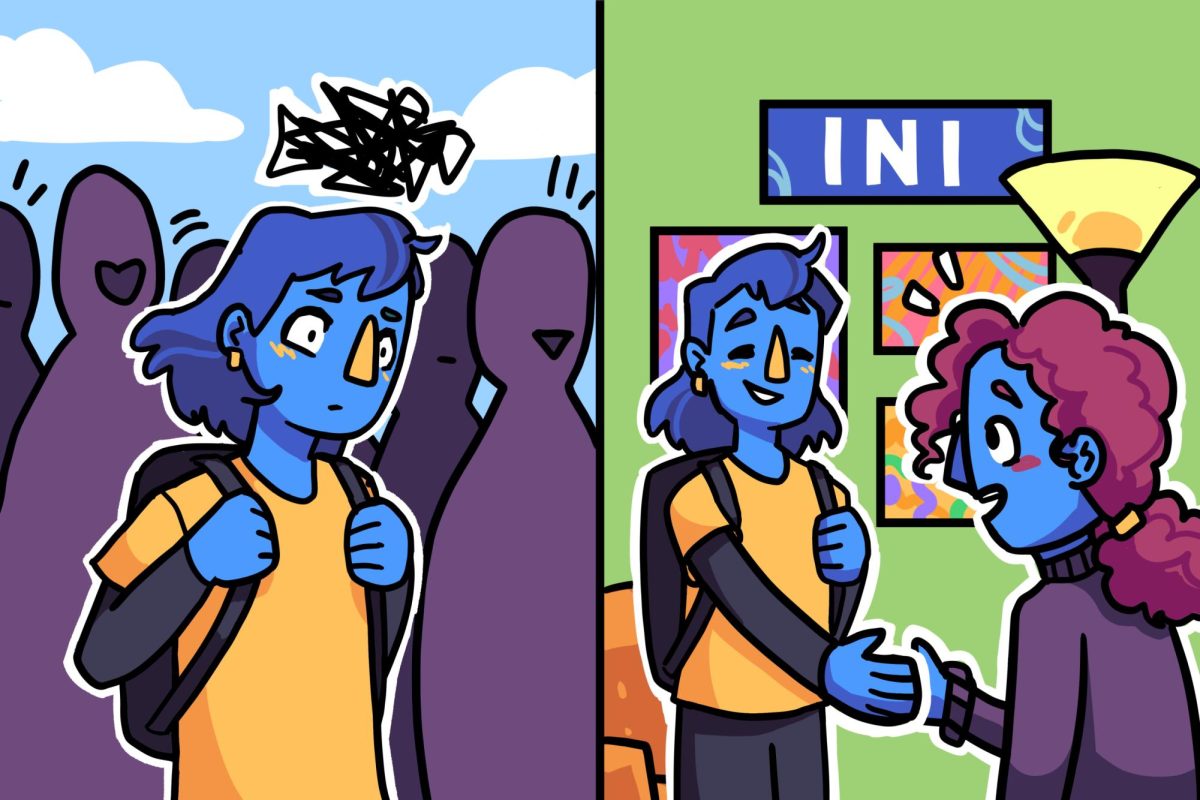As the humming of people filled the Iron Post on Friday, their spirits seemed to already
be permeated by the energy of the music that followed. They gathered to revisit the
songwriting of jazz musicians from Brazil’s military dictatorship.
The event, called “Utopian Songwriting,” included notes given by University professors
Marc Hertzman, Mark Steinberg and Michael Silvers. Each used his own expertise to
Get The Daily Illini in your inbox!
examine the impact of Utopian songwriters and political activism during Brazil’s military
dictatorship in the 1960s.
“There was something happening in the 1960s worldwide, which has its own particular
quality. That includes student movement here, in France, and even what was going on
in the Soviet Union,” said Steinberg, professor in the department of History and
coordinator of the Global Utopias program. “It was a sudden revival of sense of
possibility, not just recovering the old world, but really a chance to think boldly.”
In the 1960s and 1970s, Brazilian songs and songwriters played a pivotal role in
mobilizing student movements and activism against the oppressive military dictatorship.
“Jazz was very popular all the way up to the ’60s, and that’s when we see a larger
connection between social movements,” said Marcelo Boccato, who is pursuing a
doctorate in jazz studies. “We had a really strong connection in the ‘60s with the civil
rights movements and jazz.”
Boccato played the piano at the event. He said holding these types of events is
important for centering music within its cultural and historical context. Boccato also said
he believes this historical background enriches the listener’s understanding and
connection to the performance.
The music played at the event was written by many influential political activists such as
Geraldo Vandré, Chico Buarque and Milton Nascimento.
Geraldo Vandré wrote an influential song called “Pra não dizer que não falei das flores,”
which eventually became the anthem for student protests and demonstrations for
democracy in Brazil.
“A lot of times, folks were not nearly as explicit or confrontational with music, but in that
song itself and in the larger student movement, you can see a distaste for the military
government which is oppressing people that they don’t agree with,” said Hertzman,
assistant professor of history specializing in Latin American and the Caribbean.
“The importance of musicians being on the front line at the student movement, being
right there putting their bodies on the line along with the students. I think that has an
immeasurable impact. They’re not just singing it.”
Hertzman said Vandré changed the way music was perceived during this time through
his confrontational expression. Vandré also showed the world that music can be
employed for political change.
“There is a larger utopian movement in the 1960s where there are people mobilizing
globally. This is clearly a moment where there are things happening all over the world,”
Hertzman said. “This music and movement were linked up with a larger global process
and desire for new ways of doing things.”
Both the student protesters and songwriters embodied the idea of utopias, which
Steinberg’s program examines.
“Something is happening now which is part of the same atmosphere we live in where
people feel like it’s not enough to just say this is the best we’re going to ever have,”
Steinberg said. “And this is Utopian, not in the sense of wildeyed idealism, but rather a
bold statement that says the world is not enough as it is and proposes new ways of
thinking about possibility.”
He said some people put the broad ideas of Utopian thought into what he calls an
“everyday Utopia,” an approach that focuses on building alternative communities and
havens locally rather than remaking politics and institutions.
“And in some ways music does that,” Hertzman said. “It’s a place, it’s a time, it’s a
moment and space to really feel the emotional liberation of being in a space that’s
removed from the rest of the world in hopes of rebuilding it from the bottom up.”









